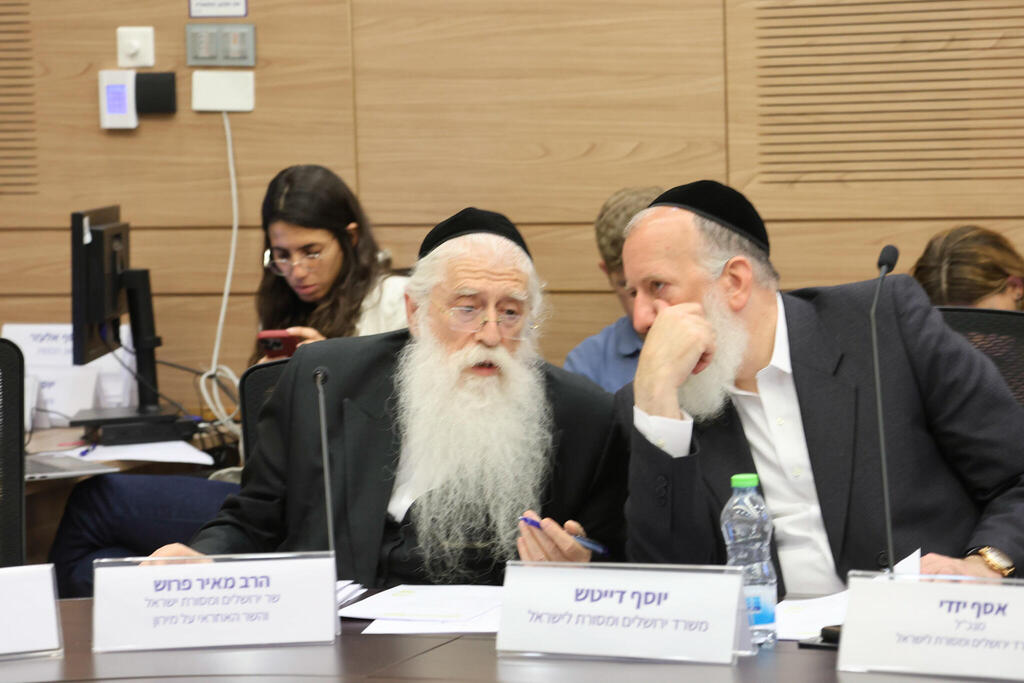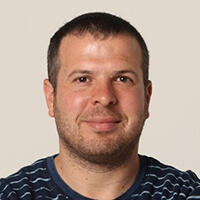In a significant move reported by Ynet and Yedioth Ahronoth, the IDF announced last week that the traditional Lag B'Omer celebrations on Mount Meron would be cancelled due to pressing security concerns. Despite the current volatile situation, representatives from the Haredi Orthodox community, led by Minister Meir Porush, are advocating for a scaled-down version of the ceremony, striving to maintain the holiday tradition with a minimal number of participants.
Firing toward Mt. Meron
Israel's chief rabbis, Rabbi Yitzhak Yosef and Rabbi David Lau, issued a joint statement on Thursday, urging the public to adhere to the security forces' directives and refrain from visiting Mount Meron this year.
"At this time, a severe conflict is ongoing in the north and south of the country, unfortunately resulting in heavy losses. We continue to pray for the protection of all residents of Israel. Due to the security situation and the associated risks, the security authorities have decided that this year's celebration in Meron will not take place," they said in a statement as the holiday of Lag BaOmer, which begins next Saturday night, approaches.
"We call upon our brethren, wherever they may be, to adhere to the Torah commandment 'and you shall greatly protect your souls,' and to fully comply with security forces' instructions, avoiding the ascent to Mount Meron this Lag B'Omer. Additionally, in any place where there is a safety concern, it is imperative to follow the security forces' guidelines and hold the lighting ceremony only in a safe location," the rabbis said.
Since Lag B'Omer occurs on a Saturday night this year, the chief rabbis also recommended shifting local bonfire lightings to the next afternoon and evening to avoid desecrating the Sabbath. They specified, "Those lighting on Saturday night should not begin preparations or lighting before 9:00 p.m.." They concluded their message with prayers for the success of the security forces and the safe return of hostages.
During a National Security Committee discussion on Wednesday, Porush emphasized the importance of maintaining the centuries-old lighting tradition, even in a limited capacity. "It is neither possible nor desirable to completely forgo a centuries-old lighting tradition, even if in a limited capacity. We cannot be in a situation where we are unable to hold a lighting ceremony, even for just 10 people," he said.
The committee deliberated on a proposal to host a central lighting event at the tomb of Rabbi Shimon bar Yochai, along with two additional lighting events, pending Porush’s approval. These events would permit up to 30 participants each. The proposed legislation is a temporary measure specifically addressing the planned limited event under the closure order for the Meron area issued by the Home Front Command chief.
Committee chairman Zvika Fogel of the Otzma Yehudit party highlighted that the Home Front Command's closure order for the area would take effect starting Sunday. Following a recent rocket barrage launched by Hezbollah terrorists, the police opposed any form of the event, emphasizing that the responsibility lies with the Home Front Command. "The temporary directive will be limited and relevant to the event. It is a traditional and security-related Jewish event, and it will be managed accordingly," said Fogel.
Major Anan Serhan, an IDF representative, explained the implications of designating the area as a closed military zone. "Ultimately, closing areas means that no one will enter the area without approval from the Home Front Command, with exceptions for residents and security forces."
1 View gallery


The Knesset hearing regarding the canceled celebration
(Photo: Knesset Spokesperson's unit)
Attorney Nirit Lahav-Kanizo of the Ministry of Justice clarified that even residents of the Meron areawill not be able to enter the mountain compound, designated as a closed area, without approval. Police representative Chief Superintendent Slava Bochuk reinforced that the police and district commander oppose any event, even a limited one, due to the current situation, stressing that the final decision rests with the political echelon.
Yossi Deitch, project manager for the Meron celebrations, spoke during the committee discussion. "We are conveying to the public that we are responsible and maintaining the tradition. However, given the severe security situation, the minister suggested allowing 10 people at the lighting. If there is no lighting, there will be 800 security personnel in the area instead of 400, due to increased infiltration concerns. This must be taken into account."
Colonel (res.) Moshe Even Hen from the Home Front Command also discussed the limitations at the site. "From Sunday, the Home Front Command chief's closure order for the Meron compound will be in effect to prevent people from entering, except for Meron residents. The mountain compound will allow up to 30 people, excluding security forces, at any given time. Any additional requests will be reviewed through an exemption process by the Home Front Command chief, subject to situational assessments."
Fogel requested that the Ministry of Jerusalem and Jewish Tradition provide the police with a list of the 30 approved participants in advance.




